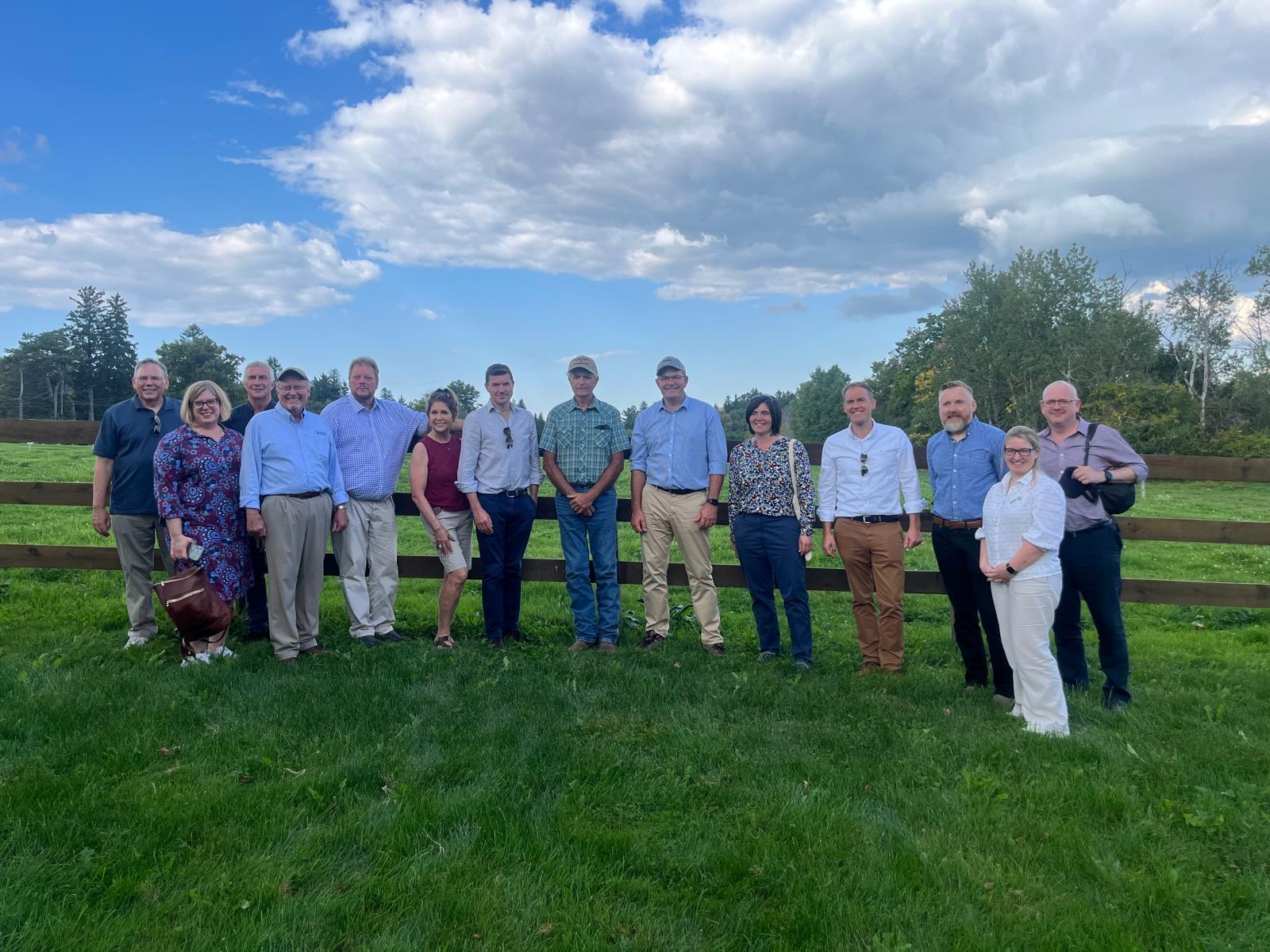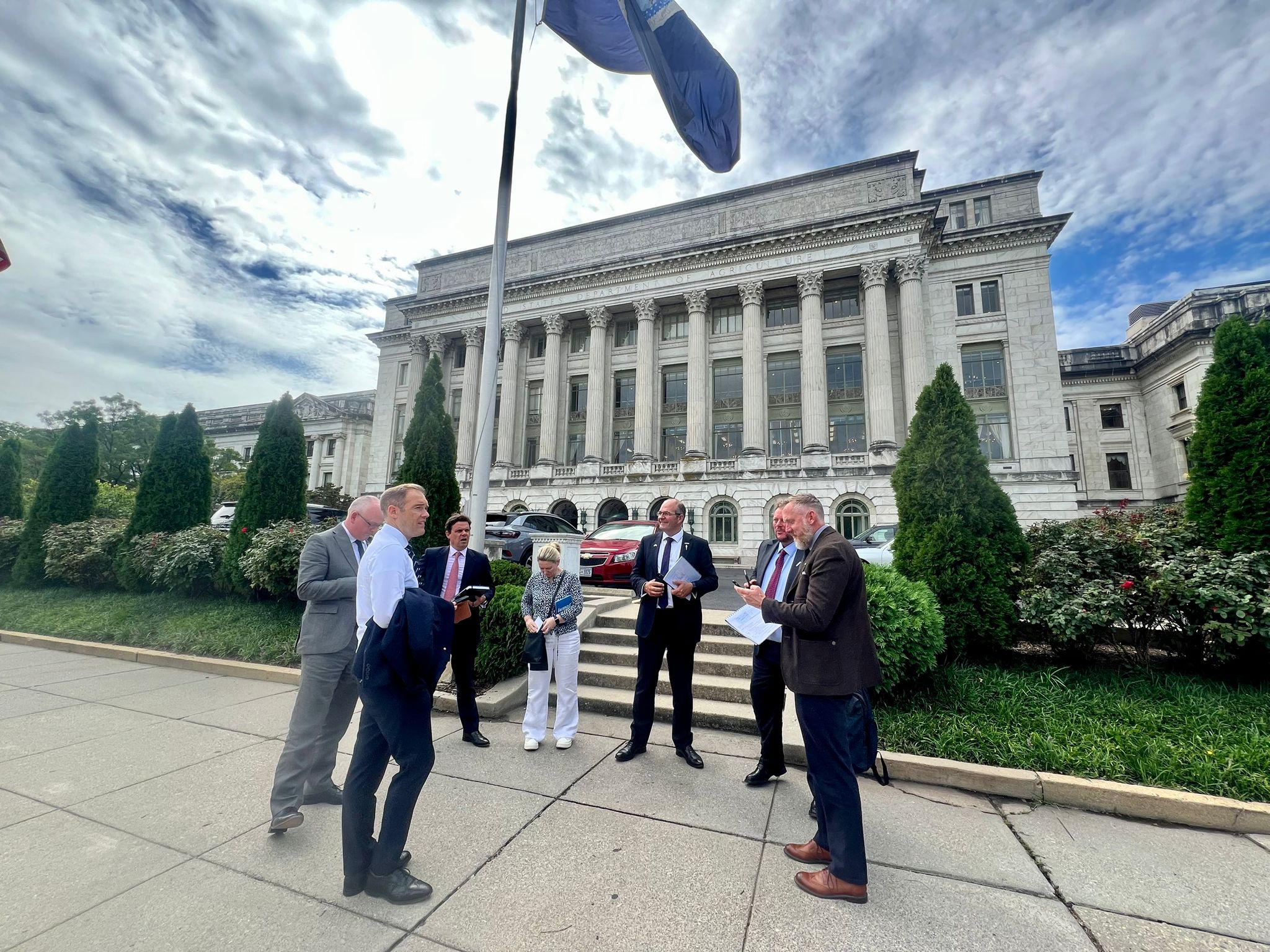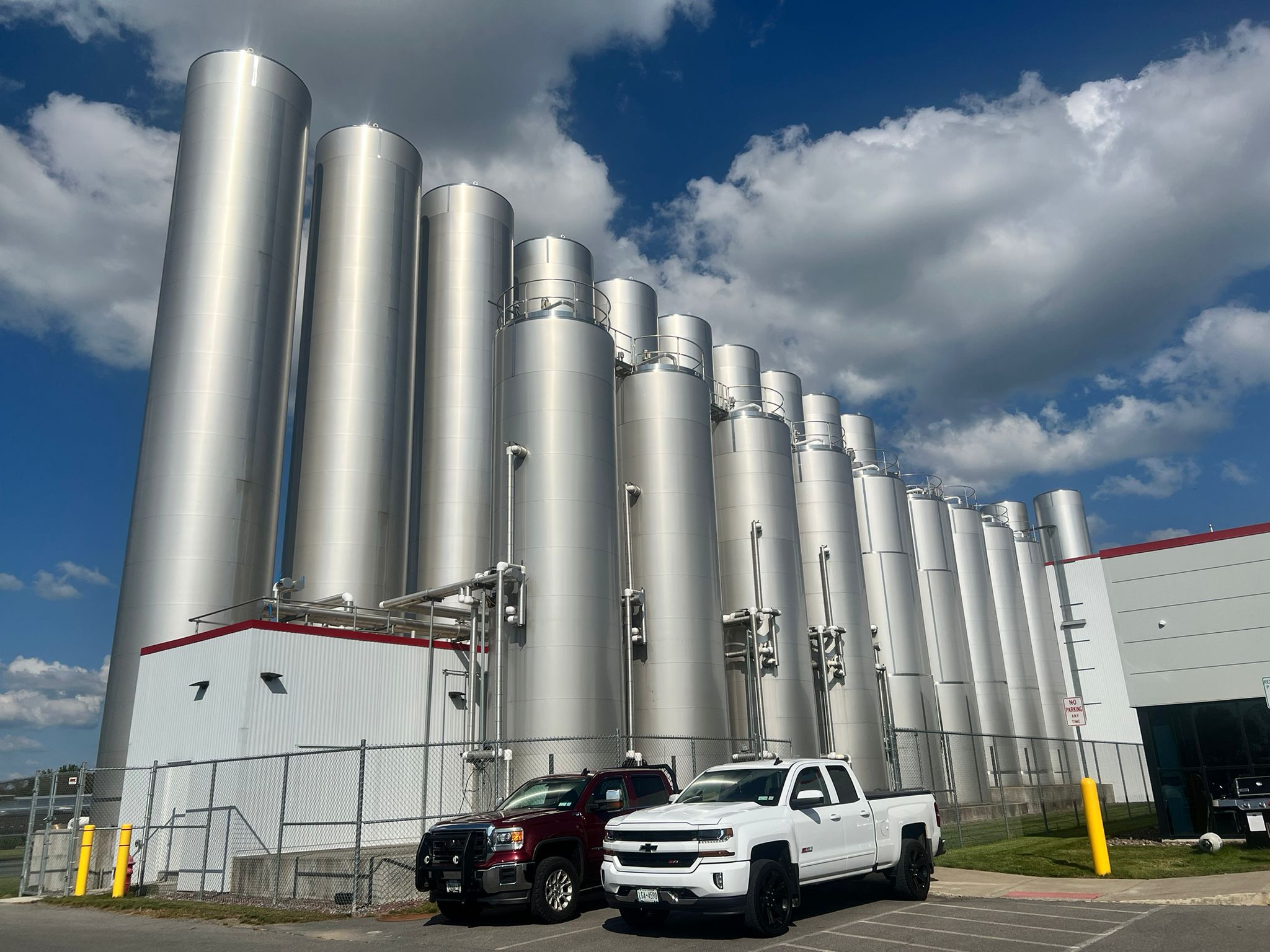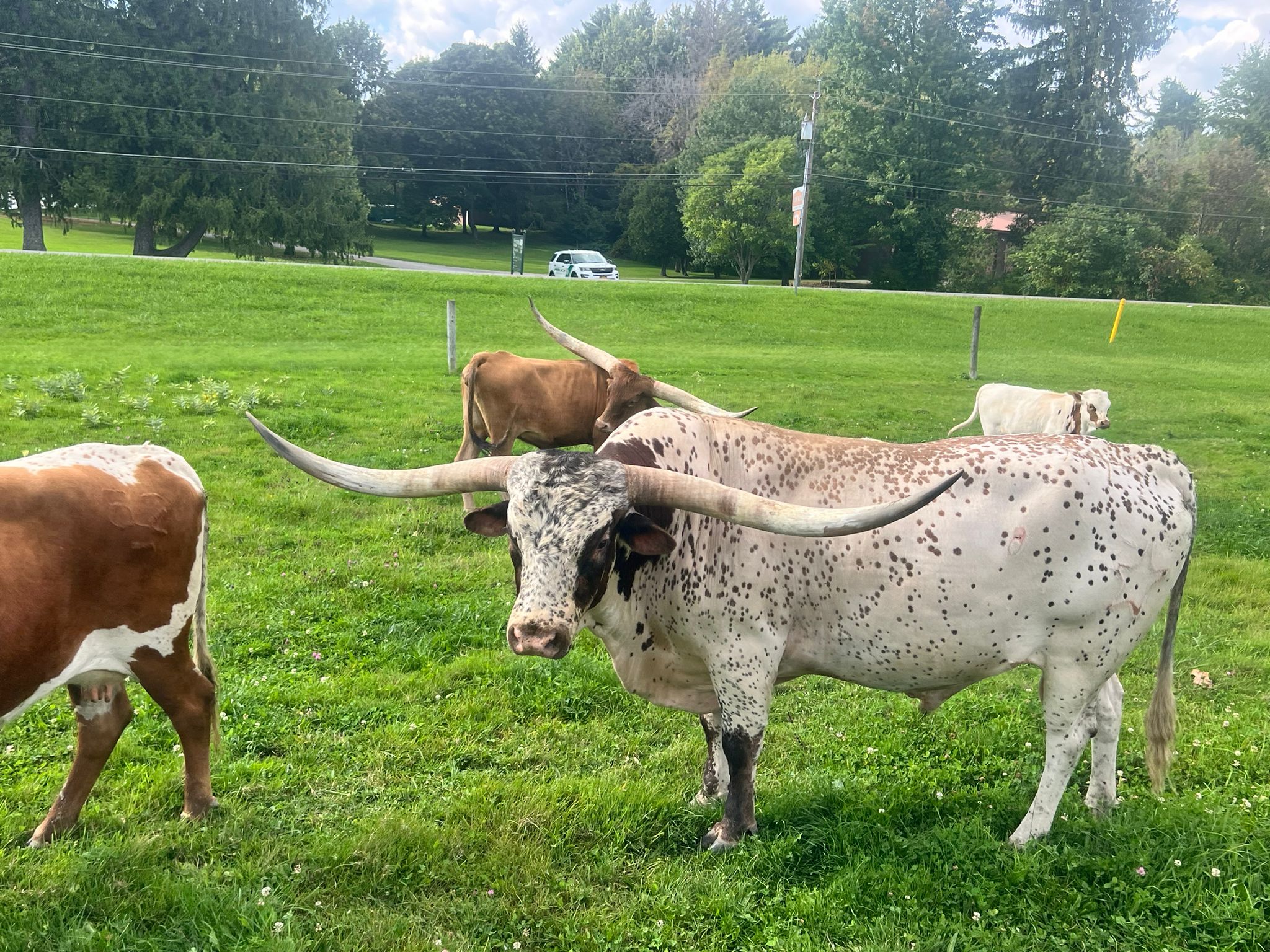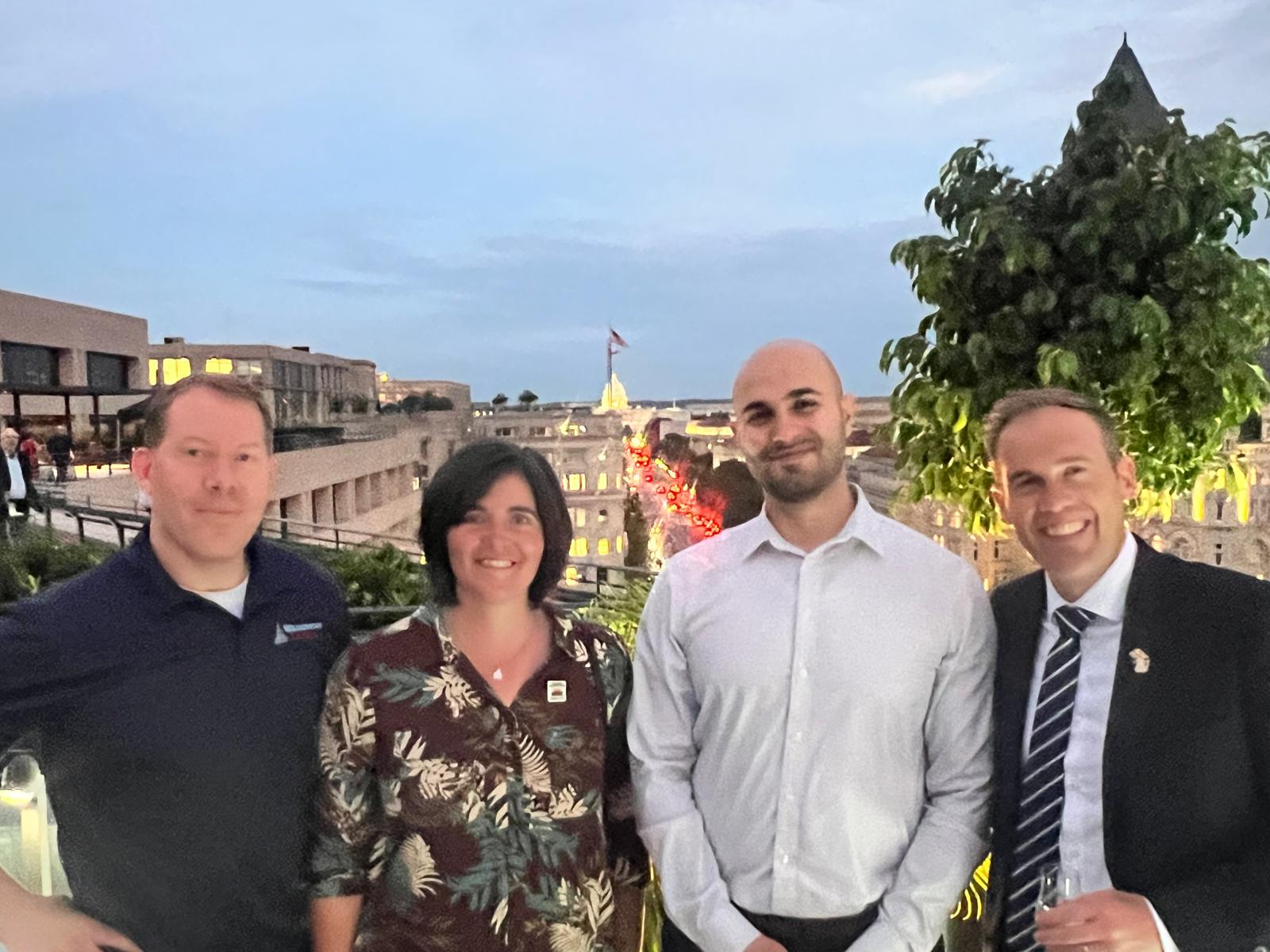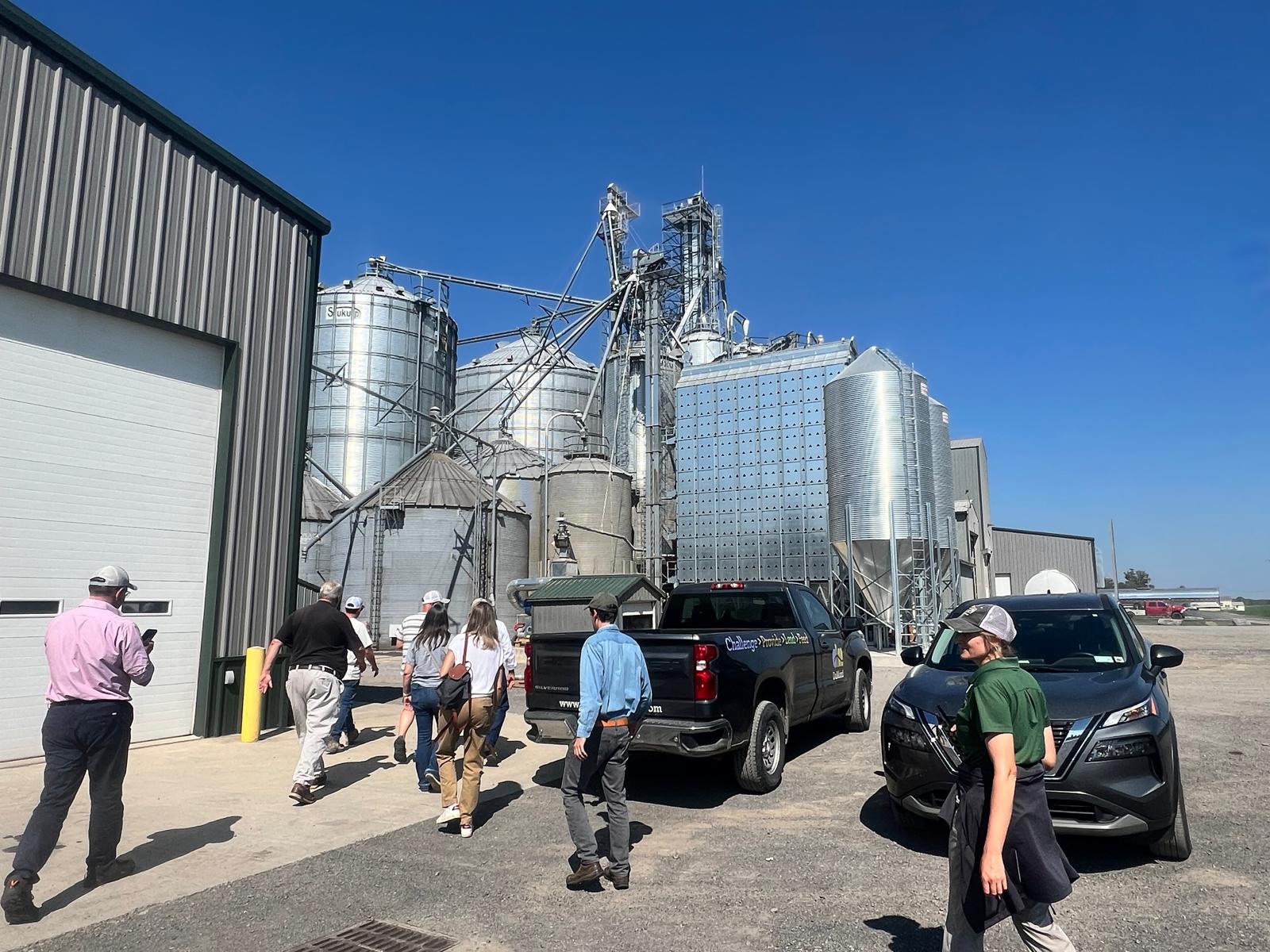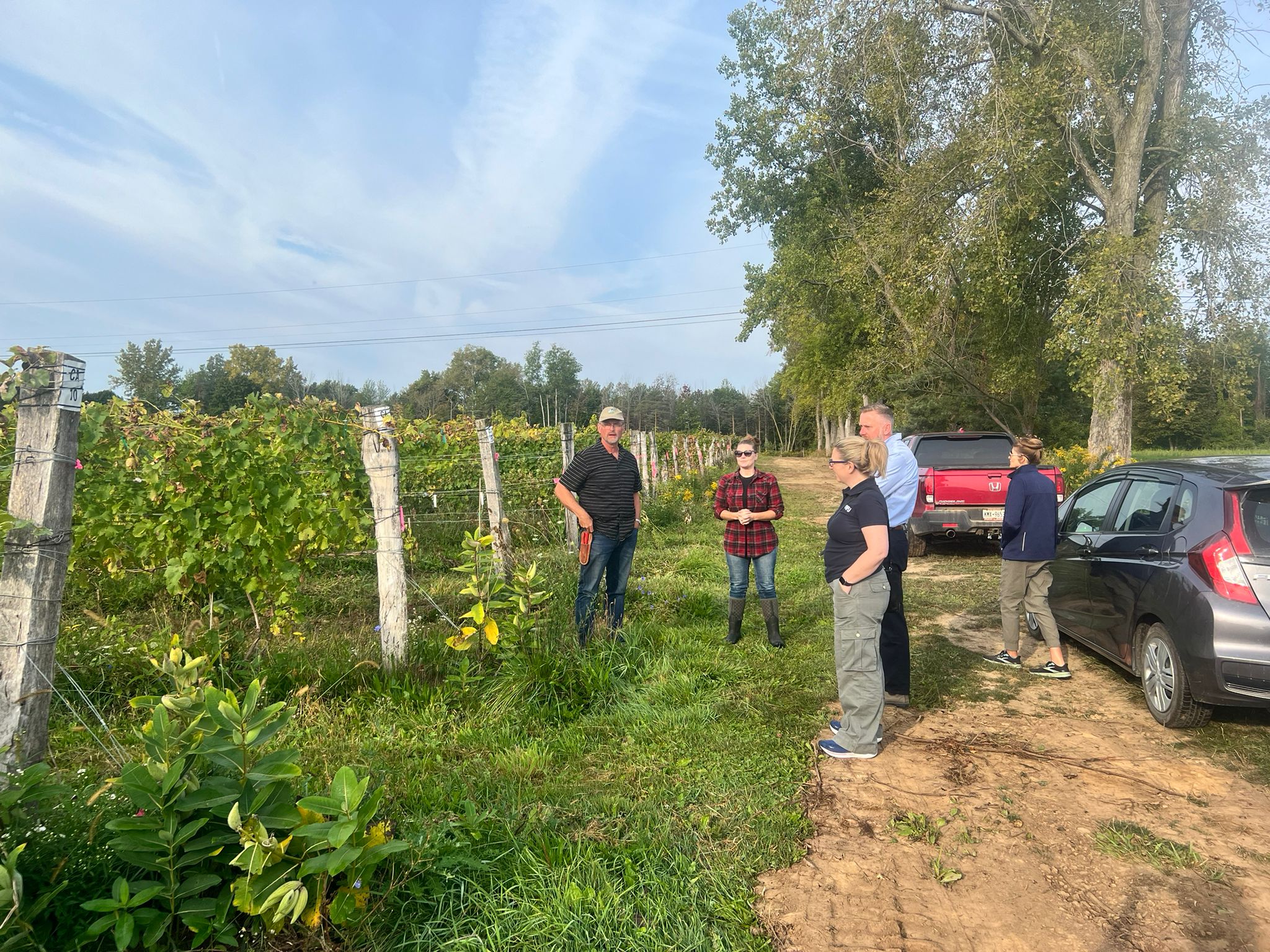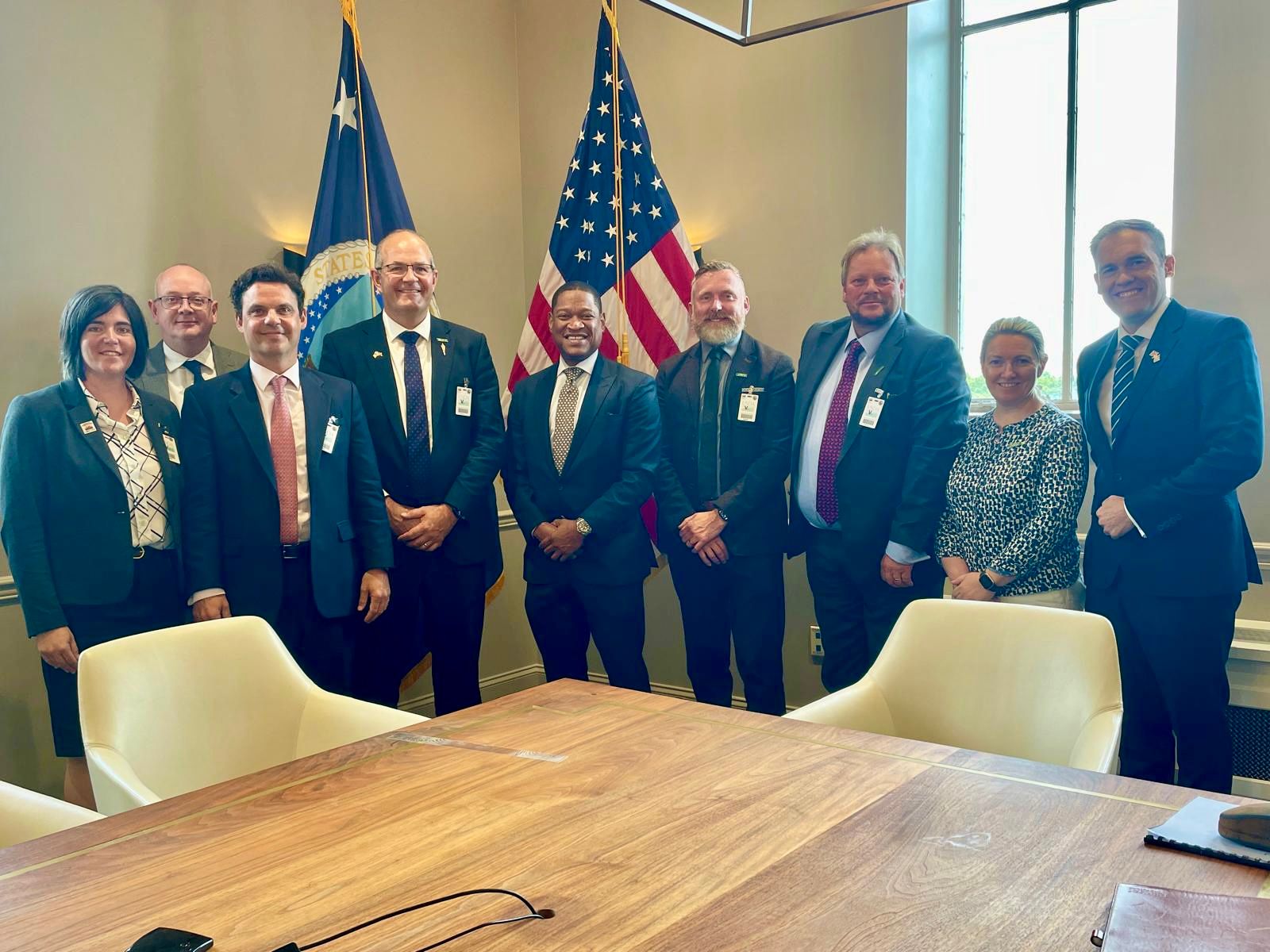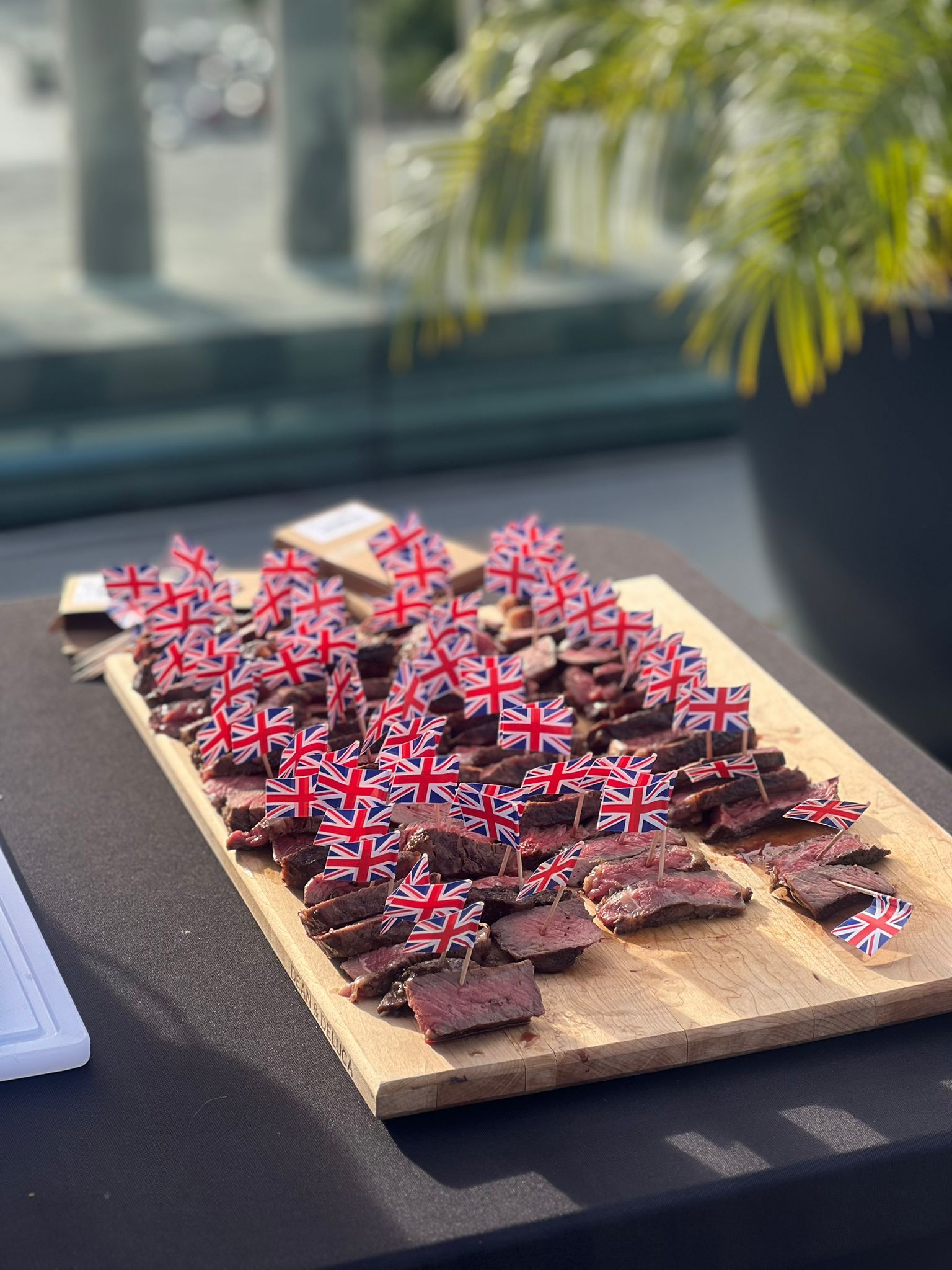Our key objectives
The aim of the trip was to build relationships with farmers and farming organisations, gain better understanding of regulation and policy in US agriculture, and discuss shared challenges and opportunities for food production.
Perhaps the most important mission was also to support the diplomatic efforts of the UK’s Agri-food attaché, Will Surman. Will confirmed that hosting government ministers is very important but having a delegation from the farming industry as well, to give a credible insight into British food and farming practices, is also vital. He explained we can’t simply expect to see our food land on US shores and for it to be in demand, we need to do the background work building the relationships and being recognised for the quality and integrity of our produce. It’s worth noting the US is the UK’s largest export market for agri-food products outside of Europe.
Deputy British Ambassador
121761,121764,121766,121767,121768,121769,121765,121763,121762
We were also joined by the Deputy British Ambassador, James Roscoe, who has a Welsh farming background himself and is a Welsh speaker. He joined us on the farm tours, and at a reception in DC, to further his own understanding of US and UK agriculture. It was really pleasing to hear the Deputy Ambassador say that he covered all UK issues, but the agriculture team were the most proactive department in getting him out and about.
New York State agriculture
Farm tours took place in New York State which is home to 32,000 family farms. The climate is more comparable to the UK than many other states, with plentiful green grass although they can’t quite match our rainfall, which averaged about 37 inches. What they lacked in rain however they made up in snow; for 2-3 months of the year, it’s sometimes a meter in depth. The state ranked second in the US for apple production, third for milk production and fourth for corn silage. Our tour was based around the Finger Lakes area. We visited 13 farms, three processors and a high-end supermarket. A number of the farms had invested heavily in agri-tourism with pick your own apples, direct meat sales, a winery, brewery, wedding venue and golf driving range.
The tours took place under the guidance of the New York Farm Bureau - the NFU equivalent in the US. Every state has their own Farm Bureau for dealing with state level matters, there is then an overarching American Farm Bureau for dealing with broad whole country issues. Their main office is based in Washington DC, and they have nearly 6 million members. The biggest concerns for New York State farmers were access to, and cost of, farm labour, and also water quality.
Meeting the State Commissioner for Agriculture
"It was a great opportunity to discuss with Washington about the credentials Wales and Britain can offer on quality, sustainability, and cultural values which they were very interested in learning more about."
It was really surprising and pleasing to be joined by State Commissioner for Agriculture, Richard Ball, essentially the equivalent of a Secretary of State for Environment and Rural Affairs. Richard himself is a vegetable grower, and told us about the 18ft of topsoil!! We were also joined by representatives from Cornell University who support a lot of farm level research. The State Commissioner was well known to just about every farmer we met, and they spoke very highly of him. Likewise, the praise for the research by Cornell University came in abundance from farmers, processors and even the retailer we visited mentioned them.
It was superb to visit a farm with Texas Longhorns. Their horns can reach up to three meters in width. The farmer explained he had a special crush that opened out and closed back in behind the animals as they moved forward.
Bovine TB wasn’t an issue in this state, or indeed much of the US. The main diseases were Rabies, Bird Flu and Goat Plague. We also visited an apple farm who explained to us they recently experienced devastating hailstorms that had damaged at least 40% of their crop. They have crop insurance, something most farmers across the US take advantage of, and were in the process of trying to work out the extent of the damage.
A lot of apple farmers in the finger lakes supplied one processor - Mott’s, owned by Keurig Dr Pepper, who produce mainly apple-based products like children’s apple sauce desserts. We visited Mott’s itself and it was interesting to get a perspective of the aspirations they have for their farmers, in terms of proximity to the factory, consistency of product and desire to support environmental public goods.
Meanwhile, the farmers wanted an opportunity for risk sharing and investment in storage facilities - their latest investment was an enormous cold storage building costing $3.5m about three years ago. They explained they generally couldn’t get a contract with Mott’s until a couple of weeks prior to harvest so planning was very difficult. They didn’t contract all their harvest to Mott’s, it made up about 50% of their sales. This farm explained how difficult it was to get a reliable contract with their processor. Hearing stories like this makes me really appreciate the huge amount of work the four UK farming unions have done on regulation of dairy contracts and it will be good to see this roll out into other sectors, horticulture and poultry being next in line.
Trade opportunity talks in Washington DC
This was a very different part of the trip, meeting with company representatives and top officials who were all very welcoming and had a keen interest in our relationship with Europe and aspirations from our new UK Government. The National Cattlemen’s Beef Association honoured us by hosting a joint reception in Washington DC with the British Embassy. They dubbed the event the ‘Battle of the Beef’ with their President serving beef from both countries on a BBQ on their rooftop space atop one of the tall buildings in DC.
The view was incredible and both beef samples went down very well. We were also joined by UK Deputy Ambassador and President Biden’s Agricultural Trade Representative Ambassador McKalip for a very supportive and mutually respectful event. It was great to see a wide variety of both local and British beverages being served, including Wales’ own Penderyn Whisky.
Also present were representatives from Washington Lamb who were very keen to engage over lamb sourcing. Over 99% of lamb imported into US is from Australia and New Zealand, and at the moment UK lamb is too expensive to compete.
However, it was a great opportunity to discuss with Washington about the credentials Wales and Britain can offer on quality, sustainability, and cultural values which they were very interested in learning more about. They have maintained contact since getting back to Wales and it has been very productive to share details of this conversation with representatives in Welsh Government Trade, with UK Department of Trade and Business and with levy bodies, so we can all explore further opportunities.
In conclusion this trip was hugely productive with new links formed and opportunities for further development identified.


